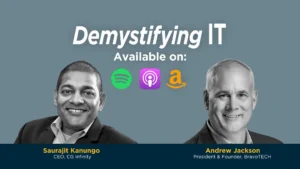The Business Case for Microlearning: Quicksilver
Over the past decade, we’ve come to realize that traditional training approaches are not A.) as effective as needed, or B.) adaptable enough for today’s fast pace businesses.
As a delivery vehicle, microlearning is a powerful tool that can deliver better business results in a way that adapts to the business environment, particularly operationally focused organizations.
Like all training approaches, microlearning needs to be designed and delivered carefully to achieve its potential. So, how exactly should organizations implement microlearning to ensure desired outcomes?
On today’s video episode of Quicksilver: A Behind the Scenes Look at The eLearning Alchemist Podcast host Clint Clarkson and guest Dan Belhassen discuss the business case for microlearning and how it’s changing the face of corporate training.
Dan is an elearning innovator with a practical passion for microlearning. He’s founded multiple successful businesses in the EdTech space, including the agile microlearning platform Ottolearn.
Ottolearn’s evolution as a microlearning platform has been led by Dan’s desire to help organizations achieve business results more quickly and in a way that is less disruptive to the workforce.
Organizations such as Nissan, Cleveland Clinic, Canadian Western Bank and Pita Pit are using Ottolearn in conjunction with traditional learning methodologies.
Cleveland clinic, for example, began using Ottolearn to improve retention following for their leadership development training. They discovered that learners “after completing their initial training, had a 35 percent knowledge gap,” Dan said. “By leveraging Ottolearn the were able to reduce that [gap] to less than one percent… and keep it there.”
While microlearning has certainly delivered results in many organizations, not all organizations have used it successfully. To leverage recent research on brain science, the tool needs to be fine-tuned to achieve positive results.
Dan indicated that, “We continue to tune the algorithms in order to reflect how learners are actually learning and retaining the knowledge.” It’s ineffective to measure training immediately after it’s been completed, because it doesn’t tell us if the learner will be able to recall the information six months from now when they need it for the first time. Ottolearn addresses this concern using spaced retrieval the opposite of massed practice which is predominantly used in traditional training.
“We’re interested in long-term retention,” Dan said, so “we need to measure at what point learners actually start forgetting and then plan training interventions right at the point that they’ve started forgetting.”
While microlearning is not a training panacea, it’s ability to focus on long term knowledge retention and fit the needs of fast paced, high-efficiency businesses make it a compelling choice for corporate learning initiatives.
Organizations should consider how microlearning can serve their business if they seek to:
1. provide their employees with more training,
2. collect more data on the results of that training, and
3. do so without significantly interrupting their business activities.








